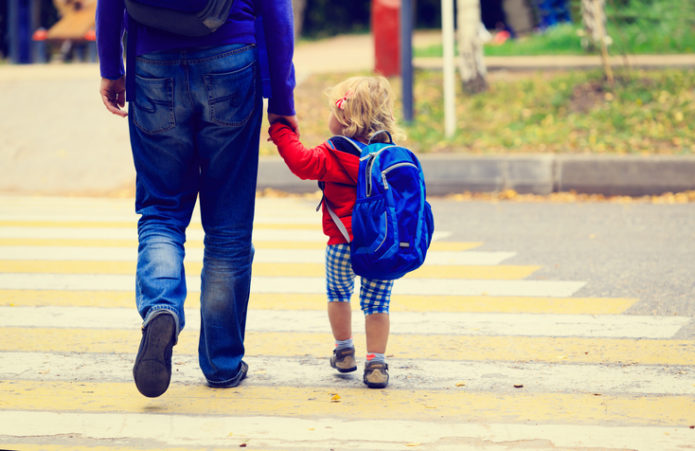Children who have a good relationship with their father are happier, feel less anxious and are more engaged in physical activity, according to major new research published by the Economic and Social Research Institute (ESRI). It confirms the importance of fathers in the lives of children.
Using data from the Growing Up in Ireland (GUI) study, the findings show that most 9-year-olds (78 per cent) report getting on very well with their father and most (84 per cent) say they would talk to them if they had a problem.
Over half of fathers reported sharing most care and play activities with the nine-month-old infant equally with their partners, though mothers were more involved in personal care (such as feeding, dressing and bathing the baby). Fathers reported greater involvement where mothers were in full-time employment and less involvement if they themselves were working long hours. Fathers being more involved in care was linked to greater bonding with the infant and this had a lasting effect on relationship quality measured when the child was aged five and nine.
As the child grew older, fathers were very involved in activities and outings with the child, especially reading to the child, playing games with them and being involved in sports or other physical activity.
The research focused on fathers’ involvement with their children from nine months to nine years of age in two-parent households. It also looked at non-resident fathers. It finds that children who are not living with their fathers are less likely to report that they get on very well with them (65pc versus 79pc of those living with their fathers).
The ESRI said the numbers of lone fathers and same-sex couples in the GUI sample were too small to analyse separately.
















